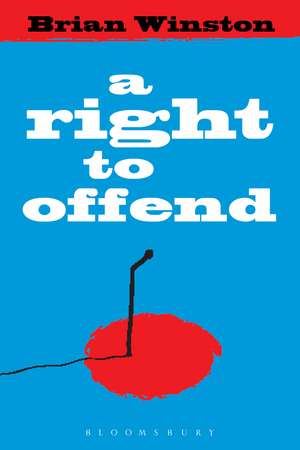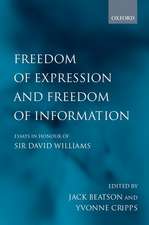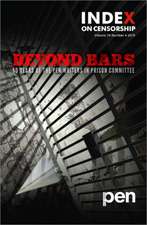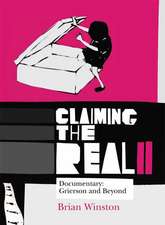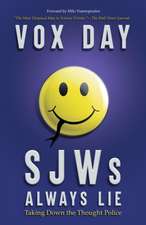A Right to Offend
Autor Brian Winstonen Limba Engleză Hardback – 12 sep 2012
| Toate formatele și edițiile | Preț | Express |
|---|---|---|
| Paperback (1) | 270.97 lei 43-57 zile | |
| Bloomsbury Publishing – 12 sep 2012 | 270.97 lei 43-57 zile | |
| Hardback (1) | 836.89 lei 43-57 zile | |
| Bloomsbury Publishing – 12 sep 2012 | 836.89 lei 43-57 zile |
Preț: 836.89 lei
Preț vechi: 1068.54 lei
-22% Nou
Puncte Express: 1255
Preț estimativ în valută:
160.14€ • 167.62$ • 133.29£
160.14€ • 167.62$ • 133.29£
Carte tipărită la comandă
Livrare economică 31 martie-14 aprilie
Preluare comenzi: 021 569.72.76
Specificații
ISBN-13: 9781849660150
ISBN-10: 1849660158
Pagini: 432
Ilustrații: None
Dimensiuni: 156 x 234 x 24 mm
Greutate: 0.78 kg
Ediția:New.
Editura: Bloomsbury Publishing
Colecția Bloomsbury Academic
Locul publicării:London, United Kingdom
ISBN-10: 1849660158
Pagini: 432
Ilustrații: None
Dimensiuni: 156 x 234 x 24 mm
Greutate: 0.78 kg
Ediția:New.
Editura: Bloomsbury Publishing
Colecția Bloomsbury Academic
Locul publicării:London, United Kingdom
Caracteristici
Brian Winston is the leading figure in the field of media, communication and journalism, and takes an active public role in journalism, television and documentary
Notă biografică
Brian Winston is Professor of Communications and holder of the Lincoln Chair at the University of Lincoln, UK. He has held senior academic posts at UK National Film and Television School, New York University, Pennsylvania State University, the University of Wales (Cardiff), Westminster University and the University of Lincoln where, before his present position, he was a Pro-Vice Chancellor. At the University of Glasgow, he was the Glasgow Media Group's first director, producing Bad News (1976) and More Bad News (1980). His other books include Media Technology and Society: A History from the Telegraph to the Internet (for which he won 'Best Book of 1998', American Association for History and Computing) and Messages: Free Expression, Media and the West from Gutenberg to Google (2005).
Cuprins
Introduction: The ArgumentPart One: The Challenge Foreword: A Lesson to the Circumspect A Story to Pass the Waking Hours of the Night A More Remarkable StoryGive Me More of these ExamplesAfterword: Perceive the Dawn of the DayPart Two: The Brief (1)Foreword: Actus Reus Supresso VeriActionesConsensuAfterword: Ceteris ParibusPart Three: The Brief (2) Foreword: Non SequiturCustos MorumEx ConcessisConsensus ad IdemSugestio FalsiAfterword: Contra Ius Commune Part Four: The Defence Foreword: Accedas ad CuriamMens ReaObita DictaStare DecisisAfterword: Post Mortem
Recenzii
Every generation needs to be reminded, in George Orwell's words, that "Freedom is the right to tell people what they do not want to hear". This message is even more important in our globalized and networked world, in which nearly everyone, it seems, can speak and be heard. As usual, Brian Winston is an ideal guide to the past as well as the present and even the future challenges faced by those who are devoted to preserving this most basic human right.
Brian Winston's A Right to Offend provides two important contributions to this fraught and often under-researched debate. He brings a welcome international scope of his inquiry, guiding the reader through the differing legal systems of, say, France and the U.S. But it is his frequent recourse to history that is most instructive...A highly readable and informative compendium on freedom of expression.
The book is no slim polemic, either, but a meticulously researched 400-page demolition of arguments for the closing down of speech, not only in the press, but also online and, thankfully, in wider society, too. Winston does a sterling job of placing Hackgate and Leveson in a sound historical and philosophical context that includes John Milton, Salman Rushdie, the internet and everything in between.
Winston's views here are more than mere academic ruminations
This encyclopedic account of 'the long, and often bloody, history of the struggle' for free speech aims to dispel 'the shadow of the fatwa' that spread from Salman Rushdie, and all those involved in the publication of The Satanic Verses, until it covered every writer and academic.
Brian Winston's A Right to Offend provides two important contributions to this fraught and often under-researched debate. He brings a welcome international scope of his inquiry, guiding the reader through the differing legal systems of, say, France and the U.S. But it is his frequent recourse to history that is most instructive...A highly readable and informative compendium on freedom of expression.
The book is no slim polemic, either, but a meticulously researched 400-page demolition of arguments for the closing down of speech, not only in the press, but also online and, thankfully, in wider society, too. Winston does a sterling job of placing Hackgate and Leveson in a sound historical and philosophical context that includes John Milton, Salman Rushdie, the internet and everything in between.
Winston's views here are more than mere academic ruminations
This encyclopedic account of 'the long, and often bloody, history of the struggle' for free speech aims to dispel 'the shadow of the fatwa' that spread from Salman Rushdie, and all those involved in the publication of The Satanic Verses, until it covered every writer and academic.
Descriere
A Right to Offend explores the most important cases of conflict over the last two decades, including the fatwa against Salman Rushdie and the incident of the Danish cartoons. It provides unique insight into the increasingly threatened atmosphere in which freedom of speech operates and how it continues to inform journalism and the media.
